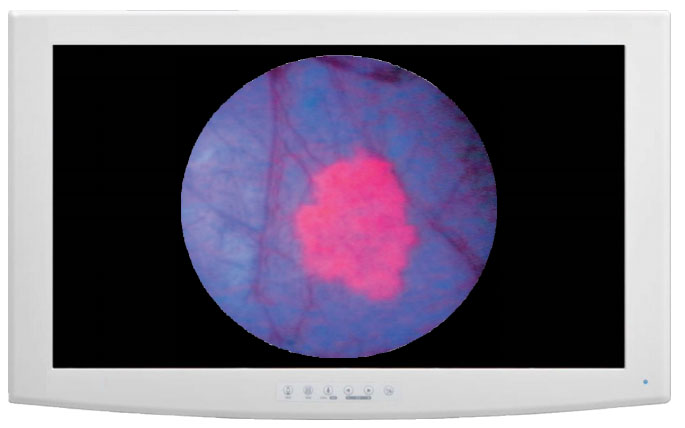Big Returns Come from Small-Cap Medical Technology
Source: George S. Mack, The Life Sciences Report (3/26/12)
A decade ago medtech was in its heyday. Baby boomers were already feeling the discomforts of osteoarthritis and other age-related diseases, and they wanted to be active longer. Device and instrument developers could innovate and get products through the FDA and market them in the U.S. where dynamic pricing power would expand margins and bottom lines. Newer technologies such as minimally invasive surgical procedures were fueling more orthopedic surgeries, because smaller wounds mean lower rates of infection, less discomfort and quicker rehab. The winds of recovery following the dot-com bust were about to carry smaller health-related stocks higher. . .
A decade ago medtech was in its heyday. Baby boomers were already feeling the discomforts of osteoarthritis and other age-related diseases, and they wanted to be active longer. Device and instrument developers could innovate and get products through the FDA and market them in the U.S. where dynamic pricing power would expand margins and bottom lines. Newer technologies such as minimally invasive surgical procedures were fueling more orthopedic surgeries, because smaller wounds mean lower rates of infection, less discomfort and quicker rehab. The winds of recovery following the dot-com bust were about to carry smaller health-related stocks higher. But that was then.
When I first spoke with Medical Technology Analyst William "Bill" Plovanic back in November 2002, medtech was a major growth industry. Plovanic, then with First Albany (now Gleacher & Company), told me his favorite pick at the time was Zimmer Holdings, Inc. (ZMH:NYSE), which had been spun out of Bristol-Myers Squibb Co. (BMY:NYSE) in August 2001. Zimmer proceeded to more than double by mid-June 2004. To a lesser extent he also liked Exactech Inc. (EXAC:NASDAQ), which doubled by mid-June 2004. Same with ArthroCare Corp. (ARTC:NASDAQ), also doubling during that period and is now triple its price from the time Bill and I spoke. He was also recommending Cyberonics, Inc. (CYBX:NASDAQ) when its market valuation was just over $400 million. Today the company is worth just over $1 billion.
So I was anxious to speak with Plovanic once again to hear his ideas. In 2007 he moved from First Albany to Canaccord Genuity, where his coverage list maintained some old favorites and saw some newer names added. He allows that conditions in medtech haven't been optimal recently. "It has been difficult from a macro perspective, and therefore investors are not focused on putting money in to work into the medtech space," he says. "Over the last year or two, it's been challenging, to say the least." Many medtech companies, the growth names in particular, topped-out toward the end of 2010 to early 2011. Plovanic thinks of 2011 as a "consolidation year" when many stocks were range-bound.
An obvious question for Bill Plovanic was to ask why medtech had suffered. Has it been macroeconomic, regulatory, larger co-pays and annual deductibles? What is the single biggest factor? "All of the above," he says without hesitation. "Obviously, these things have resulted in a slowdown in procedure volumes which have changed drastically, and that has hit these companies. On top of that, we're looking at negative pricing in orthopedics," he says. The bottom line is declining procedure volumes, lower pricing and less innovation.
Although the environment is challenging, Plovanic believes there is both growth and value available in the small cap medtech space. He offered some names that he fully expects will overcome the headwinds:
His growth ideas include robotics developer MAKO Surgical Corp. (MAKO:NAS) (Plovanic: Hold; Target $33); DexCom Inc. (DXCM:NASDAQ) (Plovanic: Buy; Target $11.50) with its glucose monitoring system for diabetics; disposable insulin pump developer Insulet Corp. (PODD:NASDAQ) (Plovanic: Buy; Target $27); and NxStage Medical, Inc. (NXTM:NASDAQ) (Plovanic: Buy; Target $26) in the home dialysis market.
He also has some value names, and they include spinal surgical developer NuVasive, Inc. (NUVA:NASDAQ) (Plovanic: Buy; Target $21) with its "gold standard" lateral access procedure market; sports medicine company ArthroCare Corp. (ARTC:NASDAQ) (Plovanic: Buy; Target $29); esthetics device developer Solta Medical Inc. (SLTM:NASDAQ) with its noninvasive fat ablation product; and orthopedic implant devices company Exactech Inc. (EXAC:NASDAQ) (Plovanic: Buy; Target $27).
MAKO Surgical has almost doubled its market value over the past year, but Plovanic still likes the company because of its success in marketing its unicompartmental knee replacement arthroscopy system. The company made a very difficult technique-sensitive procedure easier and reproducible in the hands of nearly any orthopedist.
Toward the end of February Plovanic reiterated his Buy rating on DexCom based on Q411 revenue and guidance for 2012. He tells me the company has potential to beat its numbers. Furthermore, the big value creator downstream will be its new Gen 4 sensor which is expected out by early next year and perhaps sooner.
Insulet was first to market with a three-day disposable insulin pump. "Its next-generation disposable pump is a very promising technology," he says, "And should help more from a profit and loss standpoint than anything else."
NxStage Medical's home dialysis system may or may not offer economic advantages to payers, but it's a big hit with patients who don't have to go to dialysis centers several times each week.
Plovanic had gone negative on NuVasive, but its shares had drifted low enough that the stock is now a Buy. Given that the company has bought a neuromonitoring business, "We felt that this stock was finally positioned where it could meet or exceed expectations," he says.
ArthroCare has had its issues with the Department of Justice (DOJ) having to do with misconduct by previous management and restatement of financials, but Plovanic has it rated as a Buy. "The ongoing legal issues have been its biggest challenges over the last three or four years," he says, "But it's been going through its checklist one-by-one and ticking them off." Plovanic expects the company to be acquired. "It would fit well into somebody else's portfolio," he says.
Solta Medical pioneered fractional laser technology in esthetic medicine. "The reason we like it that it is literally in the first inning of a new product cycle in a new market with a different technology to be sold to its current customer base," he says. Insurance won't cover beautification, and therefore this is an all-cash profit center for dermatologists and other clinicians.
Plovanic has been following Exactech since March 1998, and his current target price implies 80% upside. The company trades at a significant discount to the rest of small cap med tech, and "When it gets some of its new product cycle moving and growing its top line," he says, "It will be lifting to a valuation that's closer in line with all of small cap." The company has shown strength in hip and extremities, and new products continue out of the pipeline.
DISCLOSURE:
1) George S. Mack of personally and/or his family own shares of the following companies mentioned in this interview: None.



























































